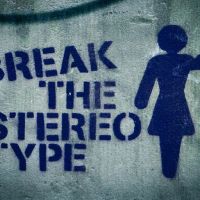I read an interesting comment recently about how many authors view Facebook as “too much work.” My first response? That’s absurd. Then I started to think about it. Compared to other social media options such as Twitter or Instagram, is it more work? Is Facebook worth the effort?
Let’s dissect this a little…
Once upon a time, social media was a mystery to many. It swirled around only in a young, exclusive crowd. In fact, at one point, you couldn’t even get on Facebook unless someone invited you.
That’s all changed. Now everyone is on social media, even grandma and grandpa. And there are so many options. So what’s best for writers? Facebook? Twitter? Instagram? Blogging sites?

Admittedly I have limited experience as an author (I only published my first book last October – The Travelers, Saguaro Books). Before that I avoided social media. (I’m since a convert.) So I don’t have extensive experience. Perhaps that’s good though. I’m a bit of a newbie with a fresh perspective both as an author and a social media user.
So, the question is Twitter better than Facebook for authors?
First Look: Facebook
Archaic Social Media is Not an Oxymoron
 OK, parents, grandparents, get ready for some truth you may not realize. Facebook is archaic. It’s old. It’s lame. It’s like referencing a Friends episode when you’re hanging out with Millennials. I hate to be the one to tell you this. But to anyone under 20 or even 25, Facebook is not cool.
OK, parents, grandparents, get ready for some truth you may not realize. Facebook is archaic. It’s old. It’s lame. It’s like referencing a Friends episode when you’re hanging out with Millennials. I hate to be the one to tell you this. But to anyone under 20 or even 25, Facebook is not cool.
And if you are or know any teens, then you know that Facebook gets an eye roll from anyone between the ages of 13 and 18 and a snicker about how they’re just on there to say hi to grandma. Right now the world for teens and middle grade is all about Snapchat. In fact, that could be passé by now and I’m not aware.
Now, don’t fear, writers, just because it’s archaic doesn’t mean people aren’t on it. For teens it’s still the #1 most used social media, even though they mock it.

And most adults use Facebook as their social media lifeline with other options falling way behind. Most don’t know or even understand Twitter, it ranks #5, or Snapchat, which didn’t even make the list.

The Facebook Time Suck
 The second I get on Facebook, I can’t just look at one or two posts for a few seconds, I get sucked in reviewing comments, clicking on cat videos, laughing at the kid who yells at Amazon’s Echo/Alexa. And that’s also the expectation. Sure you can post snappy little funny quotes. But, if you want people to pay attention to your Facebook page, you need to give them a reason to read and stay. Your content needs to be interesting and pull people in. It has to be more than a picture or a sentence.
The second I get on Facebook, I can’t just look at one or two posts for a few seconds, I get sucked in reviewing comments, clicking on cat videos, laughing at the kid who yells at Amazon’s Echo/Alexa. And that’s also the expectation. Sure you can post snappy little funny quotes. But, if you want people to pay attention to your Facebook page, you need to give them a reason to read and stay. Your content needs to be interesting and pull people in. It has to be more than a picture or a sentence.
However, the very thing that sucks your time can also have rewards. Depending on who you follow, Facebook is a great place to find out about bookish events, such as writer workshops, groups and readings. You can also connect with other writers and have deeper interactions than the passing view of a picture or a fragment of a thought.
So, is Facebook “Worth the Time”, Writers?
My answer: If you’re willing to put in the time and maybe pay for it. Expanding your Facebook presence beyond people you know is a slow and arduous process. It requires providing decent content – yes content. And unless you want to pay for your posts to be featured, those posts don’t make it past the people you know or have for some reason liked your author page. Even then, the reach beyond your comfortable, secure circle is low.
So far, from what I’ve seen, Facebook is great for people who already support you and foster your writing career. You’re probably not going to expand your social media reach and get more eyes on your profile and brand. It certainly won’t get you more than a few new readers at best. But it can be a great way to connect with other writers and have more meaningful interactions.
 A Brief Assessment of Instagram
A Brief Assessment of Instagram
I’m not going to touch on Snapchat. It’s cute. I see why people use it. I’m not sure how an author could really utilize it from a marketing perspective to reach further into a target audience.
However, if you’re going to talk about social media, Instragram is important. For teens, while Facebook use is on the decline, Instagram use is increasing. It’s also a visual medium, which inherently might be difficult for authors. But with bookstagrams (my favorite) and other ways to capture and express a writer’s life visually Instagram is a possibility for writers.
Where does it stand vs Facebook?
The reach is bigger. It’s quick and easy to follow. You can fly through many pictures and follow hundreds of people. The drawback is getting noticed in a feed with hundreds of other images and resonating with just a picture.
Now for Twitter
 It would be easy to dismiss Twitter as just being another variation of Instagram. But, like Mary, there’s something about Twitter.
It would be easy to dismiss Twitter as just being another variation of Instagram. But, like Mary, there’s something about Twitter.
Limitations can be benefits
Once you get into Twitter, you get hooked. It may be that Twitter’s limitations make it addictive. People have to learn to be succinct. It’s easily digestible, but more than just a picture.
 It has the “like” feature, similar to Instagram. But unlike (no pun intended) Instagram, it has re-tweeting, which is a whole other level of interactivity. It creates a sense of community. When I first got on Twitter, I would get so excited to see people like and re-tweet something I posted. (OK, I’m dorky. I still get excited.)
It has the “like” feature, similar to Instagram. But unlike (no pun intended) Instagram, it has re-tweeting, which is a whole other level of interactivity. It creates a sense of community. When I first got on Twitter, I would get so excited to see people like and re-tweet something I posted. (OK, I’m dorky. I still get excited.)
It’s zippy and that’s a good thing
Twitter is also easily time-boxed. You can scroll through it for a few minutes, move on and come back to it later. There is something snappy, quick and functional about twitter. It’s more efficient and focused, particularly depending on who you follow. There are fewer perfunctory friendships to sift through before you can get to the meat of what you want to see, or at least you can sift through it faster. Essentially, it’s not nearly the time suck of Facebook.
 Less content, more relationships
Less content, more relationships
Twitter is a great way to “meet” authors and readers without having to provide a wealth of content. Just a funny tweet or even a re-tweet can gain you followers and Twitter friends (aka Tweeps). You can use descriptions to search and follow people who write in your genre or have similar interests.
In a short amount of time you can follow and be followed by thousands of people. Of course, gaining attention on a feed where people flip through so fast there is no way they read everything, can be difficult. But when Tweets are only 140 characters, more people are reading than you might realize.
That said, Twitter is not the most popular social media site. It lags far behind Facebook and Instagram for adults and teens. That said, it has a hearty bookish following. There is a very large community of authors and readers that any writer would be remiss to not tap into.
Who’s the Winner?
 It’s hard to pick a winner and really there shouldn’t be one. Ultimately, it depends on the goal. If your goal is exposure and increasing interest in you and your book, it’s probably best to take the time to participate in whatever social media options you are comfortable and enjoy.
It’s hard to pick a winner and really there shouldn’t be one. Ultimately, it depends on the goal. If your goal is exposure and increasing interest in you and your book, it’s probably best to take the time to participate in whatever social media options you are comfortable and enjoy.
Social media is here to stay and while some writers might want to dismiss it, that would be a mistake. If anything, we should be grateful for it. Before social media writers had a much harder time connecting with audiences and readers. In the age of social media, it’s literally at your fingertips. So, it might be best not to rule anything out as “not worth it.”











July 22, 2017 at 7:59 pm
Thank you for the rundown – especially regarding Twitter. I’ve been debating whether I want to dive into all of that or not 🙂
LikeLiked by 1 person
July 23, 2017 at 10:54 am
It can be very daunting. It helps to have social media savvy friends and family. If I didn’t I’d probably have been too scared to try!
LikeLiked by 1 person
July 23, 2017 at 7:33 pm
YES! A friend gave me the courage to start blogging, though I still have a LOT to figure out, (like what in the world a widget is…;)
LikeLiked by 1 person